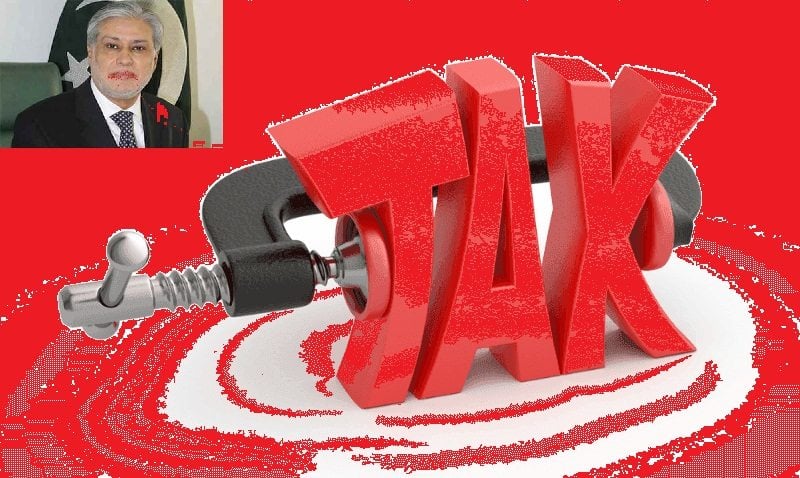Dar sahib Telcos are dying due to heavy taxation Rs 40 billion
STAFF REPORT
Censuring the exorbitant tax burden on the telecom sector, top executives of the cellular companies said that Rs 40 billion annual withholding tax on telecom consumers has brought the telecom sector on the verge of collapse.
Speaking at a seminar of the Sustainable Development Policy Institute’s Study Group on IT and Telecom on Thursday, Vice-President of Telenor Aslam Hayat said the withholding tax is imposed on those consumers, who either do not fall in the tax bracket or do not file tax returns and ultimately cannot get refunds.
During the last 10 years, the telecom sector has given Rs 800 billion revenue to the government in the form of direct and indirect taxes, he said, adding that the sector is treated differently when it comes to tax collection regime.
Hayat said instead of going to the IMF and asking for a tranche of $ 500 million, the government could have relied on the growth of this sector. He said an average user spends Rs 2,250 annually for cellular services out of which Rs 992 goes to the government in lieu of taxes, which has put a bar on the growth of broadband services.
“According to the World Bank, in low and middle-income countries, such as Pakistan, every 10 percent increase in broadband penetration contributes 1.38 percent to GDP growth,” Hayat said adding that the government has yet to fulfil its promises including provision of industrial status to the telecom sector, and reduction in withholding tax from 15 to 10 percent.
Dr. Muhammad Saleem, Director-General Commercial Affairs, Pakistan Telecom Authority, said the cellular sector in Pakistan falls among the most heavily taxed cellular sectors in the world, which is an impediment to its growth. He stressed rationalization of taxes on the telecom sector, to enhance growth.
He termed regressive the provincial government’s imposition of sales tax on the internet and data services, which was detrimental to the growth of broadband services. He pointed out that in comparison with other sectors, the tax rates of telecom sector were higher as GST and WHT rates on telecom services are up to 19.5 and 14 percent respectively compared to average GST of 16 and WHT of 10 percent on other sectors.
Tariq Sultan, Member Finance PTA suggested that reducing GST may not impact the government revenues in the long-run, and giving the status of the industry to this sector can further improve prospects. He maintained that withholding tax should not be charged from those who cannot afford it. There is a discrepancy between landline and mobile phone taxation. In case of landline, except initial Rs 1,000, there are no further taxes, but in case of mobiles, taxes are to be paid on recharge of every 100 rupees.
Maj-Gen. (r) Shahzada Alam Malik, former Chairman PTA, termed taxes on telecom sector unfair. He suggested that the government should give immediate relief for a long-term gain.
Deputy Executive Director of SDPI Dr. Vaqar Ahmed said the growth in the telecom sector has stalled due to no significant Foreign Direct Investment in this sector during the recent past. It is because of the multiplicity of taxes at federal and provincial levels. He highlighted that foreign investors were more interested in other regional economies in South Asia due to the rationalized tax burden, lower cost of doing business and investor-friendly regulatory regimes.




